Premium Only Content
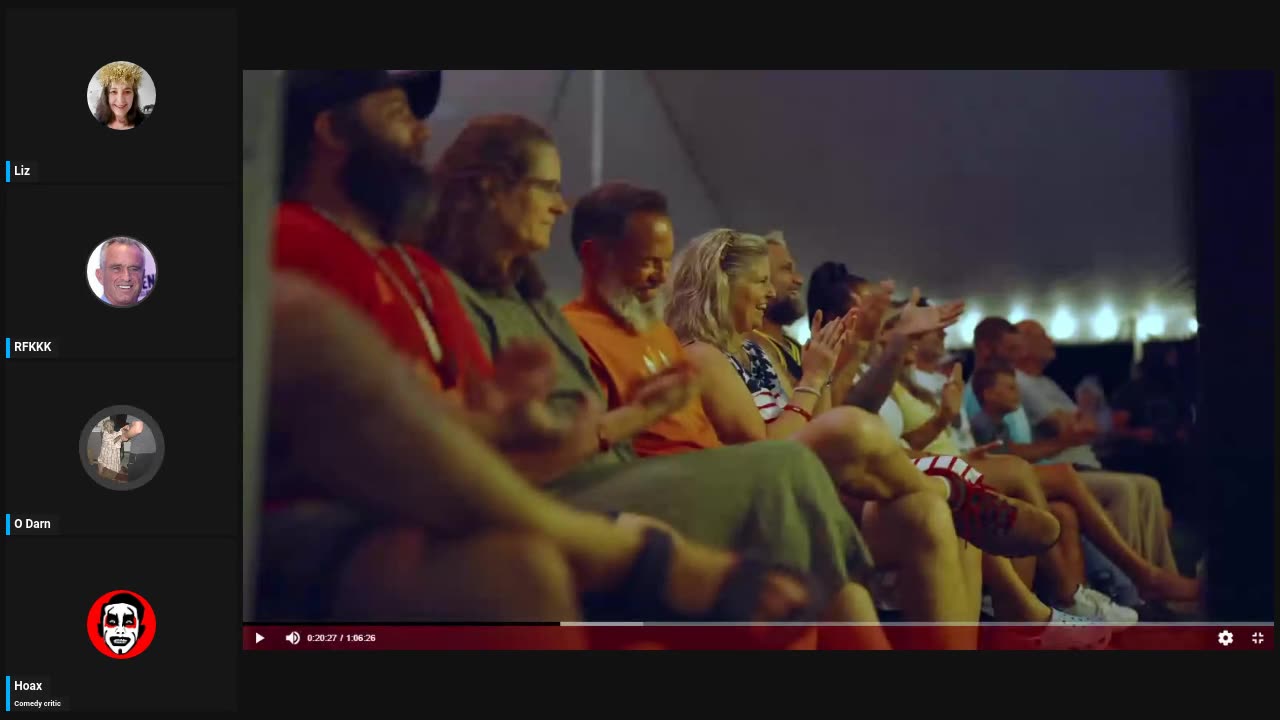
clip from "Watch Party w Panel" including special guest HOAXX WARS
Copyright Disclaimer Under Section 107 of the Copyright Act 1976, allowance is made for fair use for purposes such as criticism, comment, news reporting, teaching, scholarship, and research. Fair use is a use permitted by copyright statute that might otherwise be infringing. Non-profit, educational or personal use tips the balance in favor of fair use. NO COPYRIGHT INFRINGEMENT INTENDED. All rights belong to their respective owners.
** 1. Transformative Nature
The key element of fair use is whether the new work is transformative—meaning it adds something new or alters the original for a different purpose. A panel offering commentary, pausing, analyzing, and critiquing Owen Benjamin’s comedy special is not just reproducing the content. They are using it to critique, comment, and provide new insights, which adds significant transformation to the original material.
2. Purpose and Character of Use
Criticism and commentary are explicitly protected purposes under fair use law. Courts have historically allowed works to be used for the purposes of critique, satire, or education, provided they are sufficiently transformative. A panel of critics discussing and breaking down a comedy special in detail falls squarely within this protected category.
3. Nature of the Copyrighted Work
While comedy specials are considered creative and original works, fair use often allows excerpts of such works to be used for purposes of critique and commentary. Since the panel isn't simply re-uploading the special in its entirety but is offering added value through discussion, this works in favor of fair use.
4. Amount and Substantiality of the Portion Used
Fair use does allow for the use of substantial portions of the original work if necessary for the critique. In this case, because the panel pauses frequently and adds critical commentary, the use of large parts of the comedy special can be justified. The portions used are directly related to the critique and aren't just displayed without purpose.
5. Effect on the Market for the Original Work
For a DMCA claim to be successful, the plaintiff would need to show that the use of the work affects the market for the original. Since the panel's commentary is transformative and targets a different audience—critics of Owen Benjamin—this is unlikely to be viewed as a substitute for the original special. People who want to enjoy Owen Benjamin’s comedy are not likely to choose to watch a panel's critical commentary instead.
Why a DMCA Claim Would Be Unwise
Filing a DMCA takedown in this situation would likely be unwise because the use is so clearly fair under the factors outlined above. Attempting a takedown could result in a counterclaim from the content creators (Everyone on the panel) , which could expose Owen and his attorney to legal fees or penalties for a wrongful DMCA notice under the Digital Millennium Copyright Act’s provision against abusive claims. Additionally, if the matter escalates to court, Owen's legal team could face significant challenges defending their claim given how well-established fair use principles are for criticism and commentary
THE RISKS
Owen Benjamin and his attorney could face several legal risks if they pursue a frivolous DMCA claim while also engaging in questionable legal tactics in other cases, such as the one involving Adam Camacho. Here are the key risks:
Risk of Legal Sanctions for a Frivolous DMCA Takedown
Filing a DMCA takedown for content that falls clearly under fair use could expose Owen and his attorney to legal consequences under the DMCA's Section 512(f), which penalizes those who submit takedown requests based on false claims. If it's clear that the panel's commentary constitutes fair use, Owen and his attorney could be held liable for damages, including attorney's fees, for issuing a wrongful DMCA notice. The law is intended to deter misuse of the takedown process, and courts have punished parties for making baseless claims.
Attorney Ethics and Malpractice Risk
Attorneys are bound by strict ethical rules under the **Rules of Professional Conduct** in most jurisdictions, including California. If Owen’s attorney is found to be engaging in unethical behavior—such as using the discovery process to improperly obtain private information about internet journalists or other individuals unrelated to the Camacho case—that could lead to several consequences:
-Disciplinary Action: The state bar could investigate the attorney's actions, potentially leading to censure, suspension, or disbarment if they are found to have violated ethical standards.
-Malpractice Risk: If the attorney's actions cause harm to the case or to others (such as by making unfounded threats or attempting to intimidate opposing counsel), the attorney could be sued for legal malpractice. Engaging in intimidation tactics, such as threatening bad-faith ethics complaints to force Camacho’s attorney to drop him as a client, could not only damage the attorney’s credibility but also harm Owen’s case.
Abuse of Discovery Process
The discovery process in litigation is meant to gather evidence that is relevant to the case. Using it as a tool to obtain private information about individuals who are not parties to the case (like Covert Radio or Hector) could be considered an abuse of this process. If a court finds that Owen's attorney is misusing discovery, the court could impose sanctions, including:
- Fines and penalties for improper use of legal procedures.
- Restrictions on future discovery requests, limiting the attorney's ability to gather legitimate evidence.
- Adverse rulings that could harm Owen's case by diminishing the court’s trust in his legal team.
Risk of Retaliatory Legal Actions
If Owen’s attorney is found to be using intimidation tactics or issuing bad-faith complaints against Camacho’s attorney, this could lead to **retaliatory legal action**. For instance, Camacho’s attorney could file a motion for sanctions, argue for dismissal of Owen’s claims, or even sue for abuse of process, a legal claim that arises when litigation is used for an improper purpose, such as harassment or intimidation.
Damage to Owen’s Legal Position
Engaging in unethical or borderline illegal tactics could weaken Owen's position in both the current litigation with Adam Camacho and any future legal actions. Courts do not look kindly on litigants or attorneys who appear to be acting in bad faith, and it could lead to:
- Harsher judgments against Owen in his current or future cases.
- Loss of credibility with judges, juries, and the public, which could make it more difficult for Owen to win cases or settle favorably.
Public Relations and Reputational Damage
Any allegations of legal or ethical misconduct by Owen’s attorney could also hurt Owen’s public image. If it becomes known that his legal team is engaging in intimidation or improper legal tactics, this could reflect poorly on Owen and damage his reputation among his followers or potential supporters, making future endeavors more difficult.
Conclusion
Given these risks, pursuing a baseless DMCA claim or engaging in ethically questionable behavior—such as using the discovery process to obtain private information or threatening opposing counsel—could result in severe legal, financial, and reputational consequences for Owen Benjamin and his attorney. It would be far more prudent for them to act within the boundaries of the law, focus on legitimate legal strategies, and avoid making baseless claims that could backfire.
-
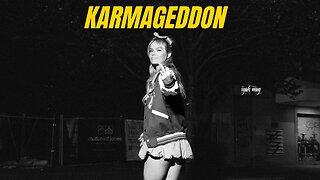 3:29
3:29
IyahMay
1 day ago $3.17 earnedIyah May - Karmageddon (Lyric Music Video)
12.9K40 -
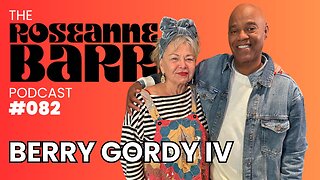 1:34:20
1:34:20
Roseanne Barr
1 day ago $20.64 earnedIt's a Vibe with Berry Gordy IV | The Roseanne Barr Podcast #82
58.6K117 -
 32:37
32:37
Anthony Pompliano
2 days ago $3.32 earnedWill Amazon & Microsoft Buy Bitcoin?!
28.1K4 -
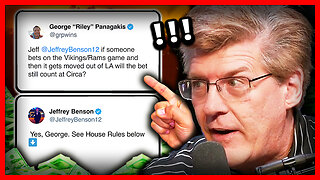 17:40
17:40
VSiNLive
1 day agoHow a TWEET Made Steve Fezzik DOUBLE DOWN on this Vikings Rams Bet Amidst the California Wildfires
30.8K3 -
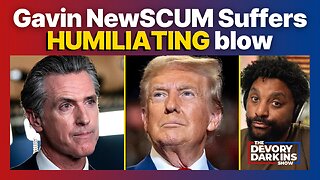 22:20
22:20
DeVory Darkins
17 hours ago $7.75 earnedGavin Newsom Suffers HUMILIATING Blow by Trump
25.9K56 -
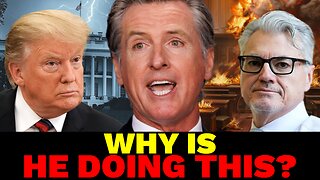 24:15
24:15
Stephen Gardner
21 hours ago🚨New Evidence DESTROYS Gavin Newsom! Trump HITS BACK HARD!!
34.3K256 -
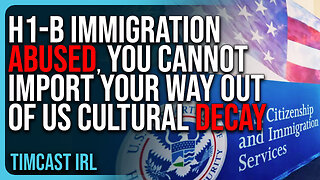 14:59
14:59
TimcastIRL
3 hours agoH1-B Immigration ABUSED, You Cannot Import Your Way Out Of US Cultural Decay
35.9K27 -
 15:21
15:21
Forrest Galante
17 hours agoWorld's Deadliest Predator Up Close (Private Tour)
35.2K4 -
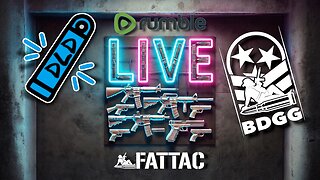 2:49:49
2:49:49
BlackDiamondGunsandGear
13 hours agoBDGG live with DLD After Dark
9.75K2 -
 27:43
27:43
hickok45
6 hours agoSunday Shoot-a-Round # 263
8.81K6